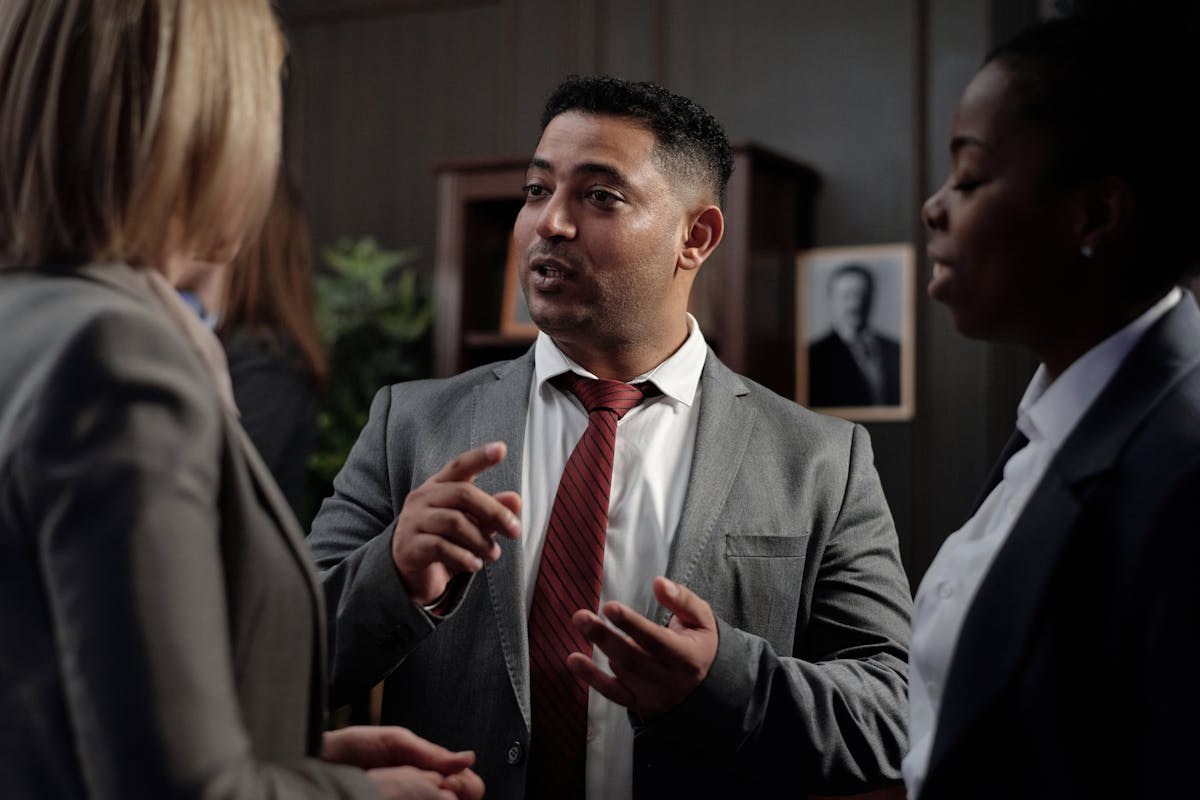Deciding whether to settle or sue in a personal injury case requires careful analysis and strategic thinking. Sweetwater Personal Injury Attorneys stress the importance of evaluating case complexity, injury severity, and evidence reliability. With severe injuries and strong evidence, litigation might lead to higher compensation. Conversely, minor injuries or weak evidence could favor early settlement. This decision impacts financial and emotional outcomes, and experienced guidance is essential. What factors should drive your decision?
Understanding the Nature of Your Personal Injury Case
Understanding the nature of a personal injury case is essential for determining the most strategic course of action, whether settling or proceeding to litigation. Different case types, such as vehicle accidents, slips, or medical malpractice, demand varying approaches. The complexity of these cases often hinges on injury severity, influencing potential compensation and legal strategy. Severe injuries may necessitate a deeper exploration of litigation to guarantee adequate compensation, while minor injuries might be resolved more swiftly through settlements. Evaluating the type of case and severity is critical; it guides the decision-making process, assuring victims receive fair treatment. Analyzing these elements provides clarity, enabling parties to choose the most effective path forward, balancing the benefits of swift resolution against the potential gains of litigation.
Evaluating the Strength of Your Evidence
A thorough evaluation of the strength of evidence is vital in deciding whether to settle a personal injury case or pursue litigation. Evidence credibility forms the backbone of any legal decision-making process. Analyzing the reliability of witnesses is essential; their testimony can greatly influence the outcome. Witness reliability is assessed by considering factors such as consistency, bias, and corroboration with physical evidence. The more credible and reliable the evidence, the stronger the case for litigation. Conversely, if evidence lacks credibility of witnesses are unreliable, settlement may be a more prudent option. Sweetwater Personal Injury Attorneys emphasize the necessity of a meticulous approach in weighing these elements, ensuring informed decisions that align with the client’s best interests and case viability.
Assessing the Financial Implications of Settling vs. Suing
How does one navigate the complex financial landscape when deciding between settling a personal injury case and proceeding with litigation? Understanding the financial implications is paramount. Settlement costs often provide a clearer, more predictable outcome, allowing parties to avoid the uncertainty of a trial. Conversely, lawsuit expenses can quickly escalate, encompassing attorney fees, court costs, and potential expert witness fees. This financial burden can deter litigants from pursuing a lengthy trial. However, a successful lawsuit may result in a more substantial financial award, potentially justifying the initial outlay. Analyzing the potential financial outcomes involves weighing the likelihood of success against the costs incurred. Strategic decision-making should focus on maximizing compensation while minimizing financial risk, ensuring an informed choice between settling and suing.
Timing Considerations: When to Make Your Move
In determining the ideal moment to settle or pursue litigation, it is essential to evaluate the strength of the case meticulously, as this will guide strategic decision-making. Timing in negotiations can markedly affect outcomes; therefore, understanding when to initiate discussions is critical for leveraging favorable terms. Additionally, being acutely aware of legal deadlines guarantees that parties do not forfeit their rights, maintaining a strong position throughout the legal process.
Assessing Case Strength
Timing can be the deciding factor in the outcome of legal disputes, making the assessment of case strength critical for determining when to proceed with litigation or consider settlement. A meticulous case evaluation is indispensable, as it involves a detailed evidence analysis to ascertain the probability of success. Analyzing the evidence not only clarifies the merits of the case but also identifies potential weaknesses that could be exploited by the opposition. Sweetwater Personal Injury Attorneys emphasize the importance of this assessment in aligning legal strategies with the client’s best interests. Evaluating case strength requires an objective review of facts, legal precedents, and witness credibility. Such thorough analyses guide attorneys in making informed decisions, ensuring clients are positioned for favorable outcomes.
Negotiation Timing Strategies
When formulating negotiation timing strategies, one must acknowledge that the art of negotiation is as much about when to act as it is about how to act. Timing can greatly impact the outcome, making it essential to align negotiation tactics with a peak settlement timeline. Engaging too early might mean missing important information or leverage, while delaying too long risks losing momentum or the other party’s interest. An astute negotiator evaluates the case dynamics, gauging when the opposing party may be most amenable to settlement. This involves analyzing factors such as emotional readiness, financial pressures, and external circumstances that might influence their decision-making. By strategically timing negotiations, one maximizes the potential for a favorable settlement, ensuring both efficiency and effectiveness.
Legal Deadline Awareness
How does one guarantee that the negotiation aligns with critical legal deadlines? By understanding and adhering to legal timelines, individuals can protect their rights and maximize their chances for favorable outcomes. Each jurisdiction imposes specific statute limitations, which dictate the timeframe within which a lawsuit must be filed. Missing these deadlines can bar claimants from pursuing legal action altogether. Consequently, it is imperative for personal injury victims to maintain a vigilant awareness of these time constraints. Consulting with experienced Sweetwater personal injury attorneys can ensure that all necessary steps are taken promptly. These professionals provide strategic guidance, enabling clients to make informed decisions about when to settle or sue, thereby optimizing their position within the confines of established legal frameworks.
The Role of Insurance Companies in Settlement Negotiations
Insurance companies play a pivotal role in settlement negotiations, driven primarily by their motivations to minimize payouts while avoiding costly litigation. They employ sophisticated strategies to evaluate settlement offers, often leveraging actuarial data and legal precedents to propose amounts that align with their financial objectives. Understanding these motivations and negotiation tactics is essential for claimants seeking a fair resolution, as it empowers them to counterbalance the insurer’s inherent advantage.
Insurance Company Motivations
Understanding the motivations of insurance companies is essential when considering their role in settlement negotiations. Primarily driven by profit maximization, these entities employ strategic insurance tactics to minimize payouts. This often involves exerting settlement pressures on claimants to accept lower offers than warranted. They may utilize delaying strategies, hoping claimants will settle out of frustration or financial necessity. Additionally, insurance companies conduct thorough risk assessments to determine the potential costs of litigation versus settlement. By carefully calculating these factors, insurers aim to protect their financial interests while appearing reasonable. Their ultimate goal is to resolve claims quickly and cost-effectively, avoiding prolonged legal battles. Recognizing these motivations provides claimants a strategic advantage, allowing informed decision-making in pursuit of fair compensation.
Settlement Offer Evaluation
Evaluating a settlement offer requires a thorough understanding of the tactics employed by insurance companies during negotiations. Insurance companies often aim to minimize payouts through strategic offer negotiation. Key to this process is understanding the settlement criteria they use, which often prioritize minimizing financial exposure. Analyzing the initial offer can reveal intentions to settle quickly at lower amounts. Insurance adjusters may exploit claimants’ lack of experience, presenting offers that appear fair but undervalue the claim’s true worth. Evaluating such offers demands a careful assessment of damages, including medical expenses, lost wages, and pain and suffering. A detailed understanding of these dynamics enables claimants to assess whether the offer aligns with their interests or if further negotiation or legal action is warranted.
Negotiation Strategies Employed
How do insurance companies skillfully navigate the complex landscape of settlement negotiations? By employing sophisticated settlement tactics and negotiation techniques, they strategically influence outcomes. Insurance adjusters meticulously analyze claims, leveraging their vast experience to assess liability and potential payouts. They often initiate negotiations with lowball offers, aiming to minimize financial exposure while gauging the claimant’s resolve. This tactic sets the stage for further negotiation, where adjusters employ persuasive communication to defend their position and counter demands.
Moreover, insurance companies utilize time as a strategic ally, often protracting negotiations to wear down claimants, increasing the likelihood of settlement acceptance. Their adeptness at balancing assertiveness with diplomacy enables them to protect their interests effectively, ensuring settlements are achieved favorably on their terms.

Emotional and Psychological Factors in Decision-Making
The interplay of emotions and psychology in the decision-making process is both profound and intricate. Individuals facing the choice to settle or sue must gauge their emotional resilience and psychological readiness. Emotional resilience is vital, as legal proceedings can be fraught with stress, requiring individuals to withstand potential emotional upheavals. Psychological readiness involves evaluating one’s mental preparedness to engage in complex legal battles, which may demand significant cognitive resources and emotional fortitude. Sweetwater Personal Injury Attorneys advise that understanding one’s psychological state can illuminate whether pursuing litigation aligns with personal well-being. Opting for settlement or litigation should be a decision grounded in a thorough understanding of these emotional and psychological factors, ensuring choices are made with clarity and confidence.
The Potential Duration and Stress of a Lawsuit
While entering into a lawsuit may seem like a necessary step for some, it is essential to understand the potential duration and stress it can entail. Lawsuits often extend over months or even years, with a lawsuit timeline that encompasses discovery, depositions, and potential appeals. This prolonged process can impose significant emotional and financial burdens. Effective stress management becomes important as the plaintiff navigates court appearances and legal complexities. It is imperative to weigh the emotional toll and potential disruption to daily life against the possibility of a favorable outcome. Understanding the intricacies of a lawsuit timeline can aid individuals in making informed decisions, balancing the pursuit of justice with the personal costs incurred during this demanding journey.
Consulting With Experienced Personal Injury Attorneys
Engaging with experienced personal injury attorneys can be a vital step in maneuvering through the complexities of a potential lawsuit. These professionals offer invaluable consultation benefits by providing clarity on legal rights and options. Their attorney expertise guarantees a thorough evaluation of the case, identifying strengths and potential pitfalls. This expert guidance is essential in deciding whether to pursue litigation or opt for a settlement. Furthermore, seasoned attorneys bring negotiation skills to the table, often leading to more favorable outcomes. Their familiarity with legal procedures and strategies can greatly influence the trajectory of a case. Ultimately, to consult with a personal injury lawyer empowers individuals to make informed decisions, safeguarding their interests while elucidating the often intimidating legal landscape inherent in personal injury claims.
Key Factors to Consider for Your Best Outcome
Understanding when to choose settlement over litigation involves evaluating several key factors that impact the potential outcome of a personal injury case. Settlement benefits typically include quicker resolution, reduced legal expenses, and privacy protection. These advantages appeal to individuals seeking immediate financial relief and confidentiality. Conversely, lawsuit risks encompass prolonged proceedings, increased costs, and uncertainty of verdict outcomes. Courts may not always deliver favorable judgments, adding to the unpredictability. Additionally, litigation could strain personal relationships due to public scrutiny. Analyzing the strength of evidence, potential compensation, and emotional readiness is vital. Weighing these elements against the backdrop of settlement benefits and lawsuit risks enables informed decision-making. Ultimately, a strategic approach tailored to individual circumstances guarantees the best possible outcome in personal injury cases.
Frequently Asked Questions
Can I Change My Attorney During a Lawsuit?
Changing attorneys during a lawsuit is permissible if the attorney-client relationship is strained or ineffective. Legal systems generally uphold a client’s right to choose representation, ensuring they feel confident and supported in pursuing their legal matters effectively.
What Happens if the Defendant Has No Insurance?
When the defendant lacks insurance, plaintiffs may explore legal options such as pursuing an uninsured motorist claim. Analyzing the defendant’s assets could reveal alternative recovery avenues, emphasizing the importance of strategic legal counsel in such scenarios.
Will a Lawsuit Affect My Credit Score?
A lawsuit itself does not directly impact credit scores. However, credit implications arise from lawsuit outcomes, such as judgments or liens, which can negatively affect credit reports if debts go unpaid. Consulting a financial advisor is advisable.
How Do Court Costs Impact My Decision to Sue?
When considering whether to sue, evaluating court fees and legal expenses is vital. The potential financial burden may deter plaintiffs if anticipated costs exceed expected compensation, emphasizing the importance of thorough analysis before pursuing litigation.
Can I Sue if I Was Partially at Fault?
In jurisdictions recognizing comparative fault, individuals partially at fault can still sue, as negligence laws allow recovery based on the degree of fault. Understanding state-specific regulations and potential compensation adjustments is essential for informed decision-making.






